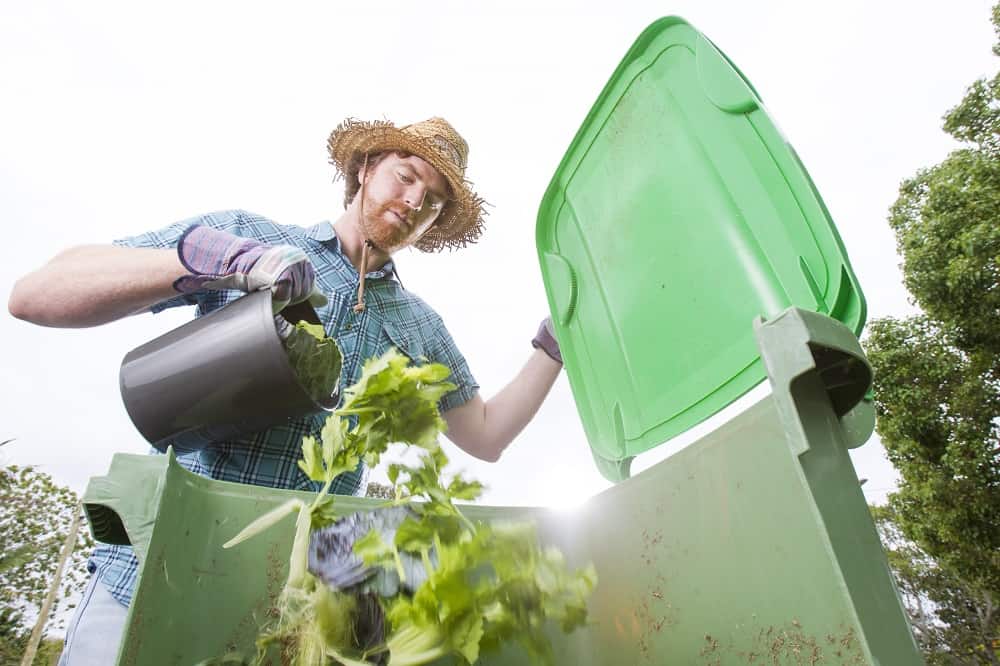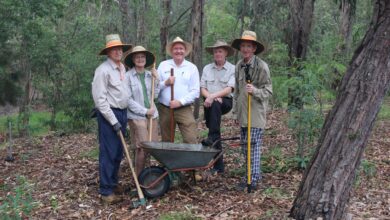About half our household rubbish is organic waste from our kitchen and garden.
Composting and worm farms are terrific ways to divert green waste and scraps from landfill and create a natural fertiliser for your garden.
And best of all – it’s easy!
Compost – The Basics
Did you know vacuum cleaner dust, bread, tea bags and eggshells can all be composted?
Composts also thrive with vegetable and fruit scraps, fallen leaves and flowers, tea leaves and coffee grounds, grass cuttings and garden waste, as well as soggy or ripped up newspaper and cardboard.
But don’t add meat and bones, dairy products, diseased plants, magazines, large branches, metals, plastic and glass, fat and oil or weeds with bulbs.
Composting can be done in open heaps, but a bin or enclosure can help keep pests and vermin away. Many commercially-made compost bins are black or dark green which helps absorb and trap heat from the sun, which speeds up decomposition. Or DIY your own using bricks, blocks or timber.
Compost is ready in 6-8 weeks when it’s dark brown, crumbly and smells earthy. It can be used as mulch on garden beds and sprinkled around potted plants as a natural and nutrient-rich fertiliser.
Worm Farms – The Basics
Did you know worms eat their own body weight every day and can double their population every few months?
Worms love a simple diet of fruit and vegetable scraps, soggy shredded cardboard and newspaper, tea bags and coffee grinds, dog hair and egg shells. But don’t feed them citrus, onion, garlic, pet droppings, meat or dairy.
To help worms eat faster cut things into small pieces, and check to make sure their meals aren’t rotting.
Compost worms convert organic waste into solid castings and nutrient-rich liquid called ‘worm tea’, which you can collect to use as a great natural fertiliser.
You can build your own worm farm using polystyrene boxes or an old bath tub, or buy a commercially-made farm or worm starter kit from a local supplier.
Start with a minimum of 1000 worms to give your worm farm the best start. You will also need damp cardboard to line the first tier, and damp cardboard, newspaper or hessian over the worms and bedding.
Free guide: compost methods and worm farms, with tips and trouble shooting hints

Is a worm farm or compost bin not big enough for your family?
Council offers a high-value, convenient food and garden waste collection service for less than 25 cents per day. Your grass clippings, prunings, leaves, shredded paper, fruits and vegetables will be mulched and turned into compost.
If you are interested in this service contact council on 3810 6666.


